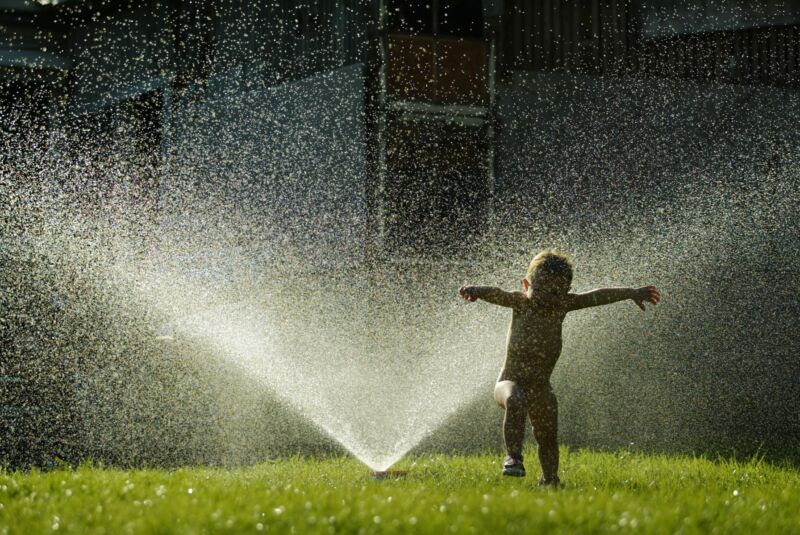Mixup of drinking and irrigation water sparks dangerous outbreak in children

Enlarge / A child cools off under a water sprinkler. (credit: Getty | JASON SOUTH)
In 1989, a city in Utah upgraded its drinking water system, putting in a whole new system and repurposing the old one to supply cheap untreated water for irrigating lawns and putting out fires. That meant that the treated water suitable for drinking flowed from new spigots, while untreated water gushed from the old ones. Decades went by with no apparent confusion; residents seemed clear on the two different water sources. But, according to an investigation report published recently by state and county health officials, that local knowledge got diluted as new residents moved into the area. And last summer, the confusion over the conduits led to an outbreak of life-threatening illnesses among young children.
In July and August of 2023, state and local health officials identified 13 children infected with Shiga toxin–producing Escherichia coli (STEC) O157:H7. The children ranged in age from 1 to 15, with a median age of 4. Children are generally at high risk of severe infections with this pathogen, along with older people and those with compromised immune systems. Of the 13 infected children, seven were hospitalized and two developed hemolytic uremic syndrome, a life-threatening complication that can lead to kidney failure.
Preliminary genetic analyses of STEC O157:H7 from two of the children suggested that the children’s infections were linked to a common source. So, health officials quickly developed a questionnaire to narrow down the potential source. It soon became clear that the irrigation water—aka untreated, pressurized, municipal irrigation water (UPMIW)—was a commonality among the children. Twelve of 13 infected children reported exposure to it in some form: Two said they drank it; five played with UPMIW hoses; three used the water for inflatable water toys; two used it for a water table; and one ran through sprinklers. None reported eating fruits or vegetables from home (noncommercial) gardens irrigated with the UPMIW.




